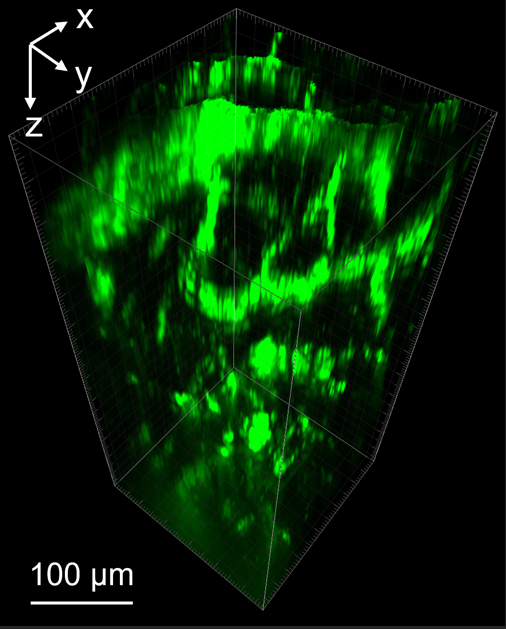Yi Xue Receives NIH Award, $1.9M to Maximize Research Potential in Optics

Assistant Professor of Biomedical Engineering Yi Xue has received a Maximizing Investigators' Research Award, or MIRA, from the National Institute of General Medical Sciences, part of the National Institutes of Health.
The award celebrates early-career researchers whose work shows outstanding potential to enhance understanding of biological processes and establish the groundwork for advancements in disease diagnosis, treatment and prevention. It also enables researchers to focus on realizing scientific breakthroughs by providing financial stability and flexibility with grants.
Over the next five years, MIRA will support Xue's research program to develop novel microscopy techniques to improve deep tissue imaging in living organisms with a nearly $2 million grant.
"Securing this NIH award marks a pivotal moment in my early career," said Xue, who joined the College of Engineering in 2022. "The stability and flexibility it provides are unparalleled, allowing me to fully concentrate on advancing my research program."

Currently, deep tissue imaging struggles due to the variable refractive index of tissues. Xue and her team of researchers in the Computational Optics for Biomedical Imaging Lab will work to jointly develop innovative hardware capable of high-speed, high-efficiency light modulation that corrects for light scattering and deep-learning algorithms that can reduce the computational complexity of deep tissue scans.
The new technology promises to accelerate insights into neuronal activity deep in the brain, immune responses and cancer metastasis. To explore these advancements, Xue will collaborate with colleagues from the Comprehensive Cancer Center and Alzheimer's Disease Center, both at UC Davis Health.
"This award empowers us to embark on a high-risk, high-reward journey to develop innovative imaging techniques that can achieve previously unattainable depths in microscopic imaging," Xue said. "I am confident that we will be able to push the boundaries of what is possible in this field, making groundbreaking contributions that were once beyond reach."
